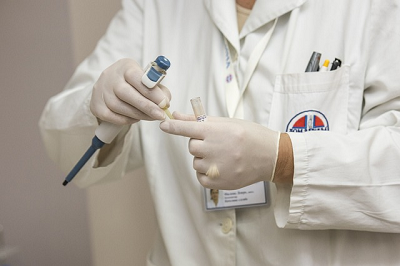Seminal Vesiculitis Has Two Types With Different Symptoms: What's Your Type?
There are several types of seminal vesiculitis in men, with acute and chronic seminal vesiculitis being the most common. Acute and chronic seminal vesiculitis differ in etiology: acute cases are typically caused by pathogenic bacteria, whereas chronic cases result from acute exacerbations that fail to heal over time. Additionally, the symptoms between these two types are entirely different.

How can you determine which type you have?
Acute seminal vesiculitis is usually caused by bacterial infection and is characterized by severe perineal pain, frequent urination, urgency, fever, and chills. On the other hand, chronic seminal vesiculitis often evolves from inadequately treated acute infections, manifesting as persistent dull pain and discomfort, possibly accompanied by long-term frequent urination, urgency, and exacerbated pain after physical activity.
Differentiating between acute and chronic seminal vesiculitis can be based on the duration and severity of symptoms, laboratory tests, imaging examinations, and response to treatment.
1. Duration of Symptoms:
Acute seminal vesiculitis typically presents as a sudden onset of severe pain, lasting usually no more than six weeks. Patients may experience urinary system symptoms such as frequent urination, urgency, and urethral burning, sometimes accompanied by systemic discomforts like fever and chills.
In contrast, chronic seminal vesiculitis may develop symptoms slower and last longer, lasting months to years. Patients often feel dull pain or discomfort, which significantly impacts their quality of life.
2. Severity of Symptoms:
Symptoms of acute seminal vesiculitis are generally more pronounced but usually peak during periods of inflammation, such as frequent urination, urgency, urethral pain, and possibly blood in semen or swelling of the scrotum. These symptoms can often be rapidly relieved with treatment.
On the other hand, symptoms of chronic seminal vesiculitis may be less apparent but often recur, such as pain during ejaculation and persistent frequent urination and urgency. These symptoms may persistently affect daily life and sexual quality of life.
3. Laboratory Tests:
Doctors may perform blood tests to assess white blood cell counts and inflammatory markers such as C-reactive protein levels. In acute seminal vesiculitis, these markers are typically elevated due to the immune response triggered by bacterial infection.
In contrast, blood test results for chronic seminal vesiculitis may be typical because the inflammatory response may be relatively mild or prolonged, allowing the immune system to adapt to the presence of inflammation.
4. Imaging Studies:
Ultrasound examinations can reveal increased fluid or fluid accumulation within the seminal vesicles, and possible thickening of the seminal vesicle walls. CT scans provide a more detailed view of the size, shape, and density changes of the seminal vesicles, aiding in assessing whether surrounding tissues are affected by inflammation.
For chronic seminal vesiculitis, ultrasound typically shows characteristics such as thickened seminal vesicle walls and decreased fluid volume within the seminal vesicles. Additionally, CT scans may reveal long-term inflammatory changes in seminal vesicle structure, such as extensive and irregular thickening of the seminal vesicle walls, helping to confirm the diagnosis of chronic seminal vesiculitis.
5. Treatment Response:
Antibiotic therapy typically yields good results because acute seminal vesiculitis is caused by bacterial infection. Antibiotics such as ceftriaxone sodium and levofloxacin can effectively kill pathogenic bacteria, thereby controlling the condition. Most patients experience rapid relief of symptoms after treatment.
On the other hand, chronic seminal vesiculitis requires comprehensive and prolonged treatment. In addition to long-term antibiotic use, treatment may include prostate massage, hot compresses, and lifestyle improvements. Resistance to antibiotics is a significant concern in chronic cases. For patients seeking more natural treatment options, Diuretic and Anti-inflammatory Pill can be effective in treating chronic seminal vesiculitis without inducing antibiotic resistance, with significant therapeutic effects.
Whether the patient has acute or chronic seminal vesiculitis, it is essential to avoid excessive fatigue and maintain a regular lifestyle to facilitate recovery. Regular check-ups are also recommended to detect and address potential issues early.
Recommended Readings:
What to Do If You Have Seminal Vesiculitis? 6 Steps for Treatment and Care
Can You Take Warm Sitz Baths If You Have Seminal Vesiculitis?
How to Effectively Exercise for Seminal Vesiculitis Patients?



